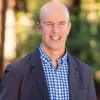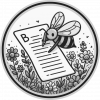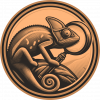BACKGROUND
Authors: @VAR1 @elsa @ahmedjunaid
Starting in July 2024 and concluding in July 2025, Elsa Carla De Grandi of Fauna & Flora, Ahmed Junaid of SAVE THE FROGS!, and Vance Russell of 3point.xyz led the WILDLABSGeospatial Group. During this time, they organized two Geospatial Cafes (one in April and one in July), featuring geospatial experts discussing their approaches to geospatial data analysis, visualisation, and management.
Membership in the group grew from approximately 500 to 612, the total number of discussions increased to 542, and a total of 332 links were shared. The leaders also conducted 15 inventory reviews, initiated 16 discussions, shared 94 resources via links, and authored two articles.
To get a better sense of membership, we conducted a baseline survey that revealed some interesting results, which were and will be used to plan future steps for the group:
- 32% of the Geospatial Group members have 4-6 years of experience in geospatial applied to conservation.
- Only 35% of the survey participants are proficient in ArcGIS.
- Survey respondents are most proficient in the use of optical (multispectral) remote sensing.
- R was the programming language that most respondents are proficient in.43% of survey respondents do not have experience with SQL.
- 36% do not have experience with Python or JavaScript.
- 71% of survey respondents did not have experience with Tableau or PowerBI for geospatial data visualisation.
- 46% of the respondents had been members of WILDLABS for less than three months.
- 71% of survey respondents would like to develop skills in geospatial data management, remote sensing techniques, and geospatial data visualisation.
- The survey respondents would like to learn new skills and would appreciate more event links and job postings.
Geospatial Cafe Events Stats
- 2 events
- 9 invited speakers
- 55 countries represented (top 3 countries: USA, Pakistan, and UK)
- 178 different organisations
Top 3 discussion posts
- ARSET training: https://wildlabs.net/discussion/nasa-arset-trainings.
- Nature Tech Unconference: https://wildlabs.net/discussion/nature-tech-unconference-anyone-attending
- GIS Education for Sustainable Development: https://wildlabs.net/discussion/gis-education-sustainable-development
LESSONS
We offer the following lessons from the past year:
- The data-centric group needs more data! Geospatial work is fundamentally tied to good data. We still need better demographic or background information on the group's members. Even broad summary statistics, such as percentages of academic, NGO, and commercial content, would help us better understand the audience (active and non-active) and target future posts.
- Geospatial Cafes were popular. Both cafes had more than 60 sign-ups and ample participation during the webinar. Still, we have limited understanding of whether the group members signed up and attended, or if it was of general interest across WILDLABS and beyond. We recommend hosting more live events like this in the future, with surveys conducted during the event to gauge membership and their interests.
- Discussions and articles were great to put together, but didn’t generate large numbers of comments. Some posts received ‘like’ emojis and thumbs up, and sometimes generated a comment, but the engagement within the group was not high. Part of this may be due to the structure of the feed, where the most recent posts supersede any previous ones, regardless of whether there’s high engagement or not. It might be worth creating an index or developing an algorithm that highlights posts that engage group members. Another reason could be that members only looked at the discussion and posts but did not react or comment, so it would be beneficial to understand the number of clicks on a link, if possible.
- Delivering content at an appropriate level of expertise. We found the general survey at the start of the leadership programme to be somewhat useful in understanding the level of expertise within the group, but it was challenging to obtain responses from members. We recommend sharing the survey more widely to collect baseline data and periodically issuing a survey to assess progress and success more systematically for planning next steps.
- Working with new colleagues and cross-collaboration with other WILDLABS groups was rewarding. Despite coordinating our calls and organization across 11 time zones, we found working with colleagues we didn’t know before this effort to be a rewarding experience.
- Build templates and material that can be reused. Starting from scratch has been challenging and required a significant time commitment. The group members spent time compiling resources that would facilitate the work of future group leaders.
- Review the Group Charter periodically. Try to be realistic when setting goals and milestones, and success criteria, and review the Group Charter periodically with the other co-leads to assess incremental progress.
21 July 2025 1:15pm
Wow great effort everyone! We wouldn't have been able to have such a successful group without all our members and our wonderful speakers @LeanneTough , Dr Kuria Thiongo, @idioguardi98 , @mayanisasi , Dr. Alice Catherine Hughes, Dr. Muhammad Rais, @eliseb227! Thanks for sharing your knowledge :)
Of course, special thanks to @VAR1 and @ahmedjunaid for being great co-leads for the past year! And to @alexrood for running the Group Leadership Programme! I am excited for what's ahead in the Geospatial group!
I would also love to hear any feedback :) and if you have found that any of our discussions & contributions have helped you with your work or simply inspired you let us know.






Elsa Carla De Grandi
Fauna & Flora